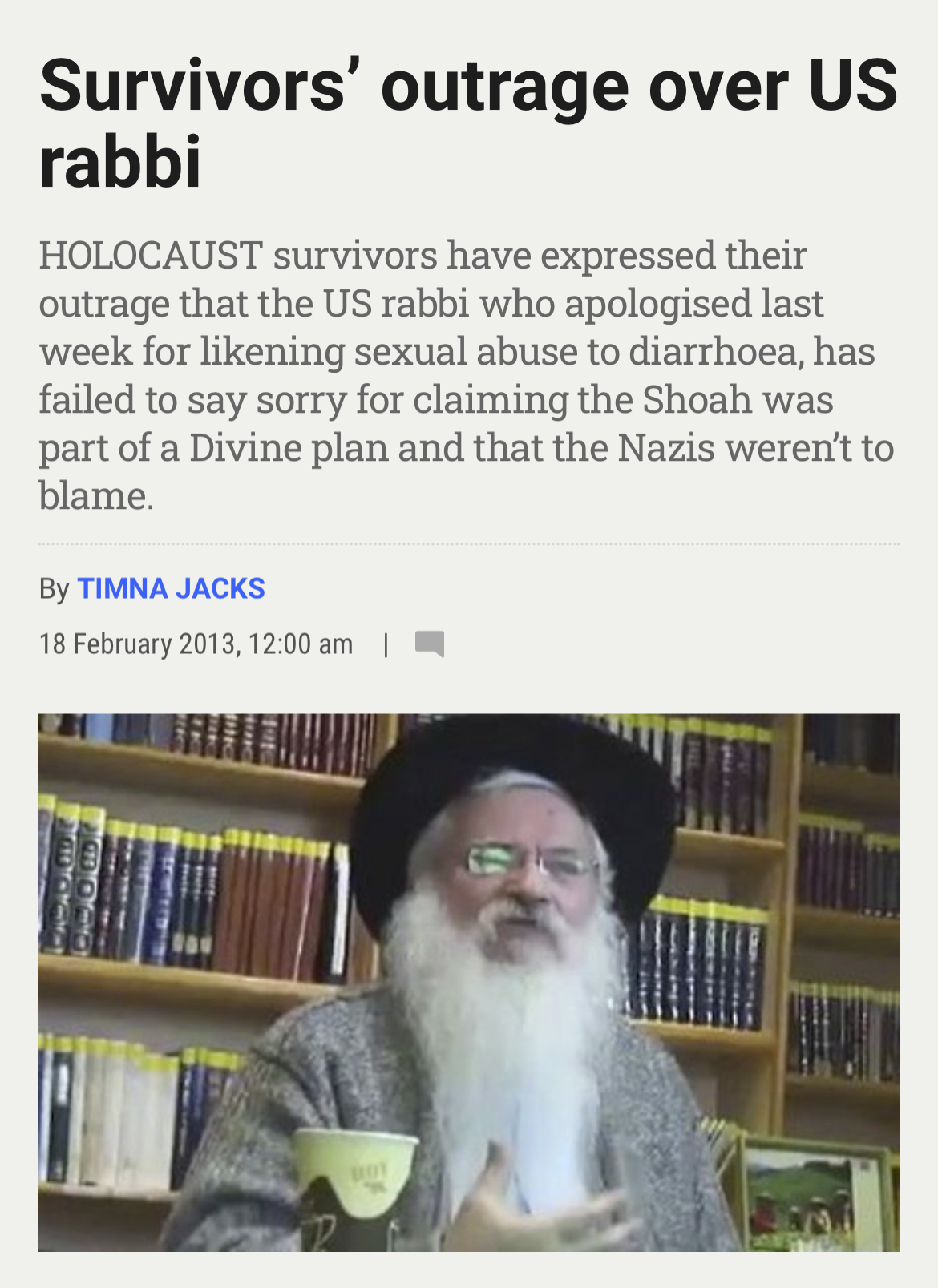A woman I sat next to at a recent event regaled me with her feelings about how the new rabbi of her synagogue didn’t talk about the Holocaust during his initial sermon prefacing the yizkor memorial service on Yom Kippur, because the Holocaust is the only subject that keeps the Montreal community connected.
Sure enough, at the next yizkor on Shemini Atzeret, the rabbi responded to her complaint by talking about the Holocaust.
I’m still trying to wrap my head around her assertion regarding my hometown—and I’ll save that for another missive—but I recognize the Holocaust still looms large for many fellow Montrealers.
And speaking ill of this genocide doesn’t sit well with many people either.
The reason I know this is because I’ve cracked the occasional Holocaust joke of my own, which I defend as a coping mechanism to deal with the pervasive nature of this discourse.
I’m also willing to accept that I’m occasionally wrong. I don’t deny the Holocaust—and I recognize its cataclysmic nature. What I cannot tolerate are people who claim it was God’s way of punishing the Jews.
Statements like these are just as vile as denying that it happened, and I can’t imagine any survivors walking around with a thought like, “Thankfully, I wasn’t punished by God.”
Which brings me to wondering why Rabbi Manis Friedman would ever be invited to speak in Montreal.

Friedman gained attention for his 1990 book Doesn’t Anyone Blush Anymore?, a howler about intimacy and marriage—which needs to wait for another missive to be adequately addressed—and he’s a regular on the Chabad speaking circuit, along with his current status as “YouTube’s #1 rabbi” with around 380,000 subscribers and an archive of over 2,000 video clips.
But during a speech in the 1980s that the Australian Jewish News uncovered in 2013, he said, “Not a single Jewish child died because of the Nazis—they died in their relationship with God.”
Another of his statements was “Bad things did not happen to our grandparents… No evil befell them,” which was ostensibly referring to the fact that righteous individuals did not suffer.
Rest assured, had identical statements been spoken by non-Jewish clerics the uproar would be deafening. Yet, because he is a popular rabbi with a long beard, he gets a pass.
In case you think this is the mad rantings of one individual, Friedman seems to have gleaned these ideas from the Lubavitcher Rebbe himself. The venerable historian Yehudah Bauer, ran afoul of Chabad when he pointed out that Rabbi Menachem Mendel Schneerson made very similar claims. But of course Chabad would never speak about that.
Friedman’s visit is part of a larger Hakhel celebration sponsored by the Chabad houses of Quebec. Hakhel is a biblical term used to denote a commandment for all the Israelites to come together once every seven years to hear the word of God read from a Torah scroll. In recent years, the Chabad world has taken the lead from the Rebbe to keep the idea alive and assemble in a similar fashion.
Gathering for a unity event to hear someone willing to expel a significant portion of Jews from the community because of their sins—who strikes me as an incredibly divisive figure—is beyond me.
But again, maybe I’m wrong.
Maybe ask a survivor if they think they deserved to survive while the less deserving ones perished? Somehow this doesn’t strike me as a message we should rally behind.
Avi Finegold is the co-host of Bonjour Chai, the weekly current affairs podcast whose latest episode is about Elon Musk vs. the Anti-Defmation League, among other hot-take topics with Phoebe Maltz Bovy and Jonathan Kay.
